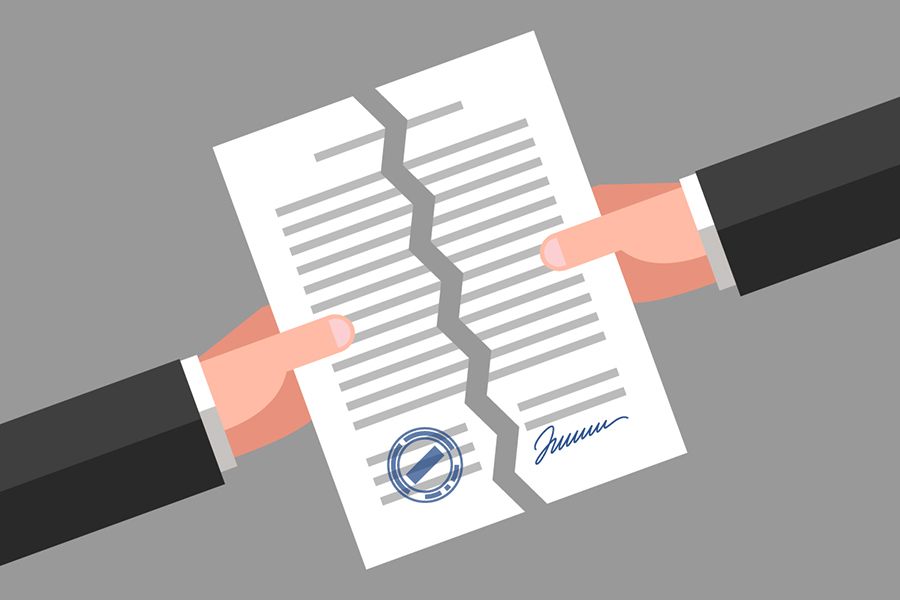
As in any relationship, the parties to a contract can become at odds. Even though a contract is intended to make the transaction beneficial for both parties, it's not uncommon for problems to arise during the performance. In fact, improper contract preparation is a major cause of contract litigation. If you are on the receiving end of a lawsuit regarding a contract, you should know there are numerous defenses available. Picking the right defense will depend on the circumstances surrounding the contract.
Contracts Against Public Policy
One possible ground for defending a contract is unconscionability. In layman's terms, this means that the contract violates some sort of public policy. Due to the inherent unfairness involved, courts lean towards invalidating these types of contracts. This defense applies to situations where there is a huge disparity in the bargaining power of the parties. However, the court will look to a particular standard to determine if unconscionability exists. Most courts need to find that the contract is so unfair that no mentally competent party would agree to it.
Fraudulent Acts
An aggrieved party can assert fraud as a defense in contract litigation. Fraud is an intentional act that seeks to deceive the other party. As such, a fraudulent act must be a misrepresentation or the failure to disclose a material fact. The standard can be heightened when there is a special relationship between the parties, i.e. a real estate agent and a client. Yet, in order for the court to invalidate the contract it must be shown the other party relied on the act in deciding to enter the deal. Therefore, it is not sufficient to just show that a false statement is made. It must concern a critical fact that affected your decision to make the contract.
Coercion or Duress
One of the basic elements to a valid contract is the voluntary assent to the terms. When a party is forced to enter a contract for some reason, it will make the agreement voidable. Examples of duress include violence or threats of violence, blackmail or other types of abuse that force a party to assent. In order to prevail on this type of defense, a defendant must prove that entering the contract was the only choice. The consequences of not entering the contract need to be so severe that it lacks any signs of voluntarism.
Defense of Mistake
To use the defense of mistake, you must follow some strict legal guidelines. Not just any type of mistake will be sufficient to void the contract. The mistake involved must be understood as such by both parties. If only one party claims that a mistake occurred, the rules of unilateral mistake apply. In a unilateral mistake situation, the contract is only voidable if the non-mistaken party should've known or recognized the mistake. Otherwise, in the case of mutual mistake, the party that is harmed by the mistake can void the contract. However, the contract may stand in situations where the mistaken party clearly undertook a risk about the assumption involved in the mistake.
Get Help With Contract Issues
Contract litigation is a very complex matter. If you need to defend yourself against a contract, consider using an experienced lawyer to help. Terry Spencer, PLLC can represent you in contract defense matters in Utah.